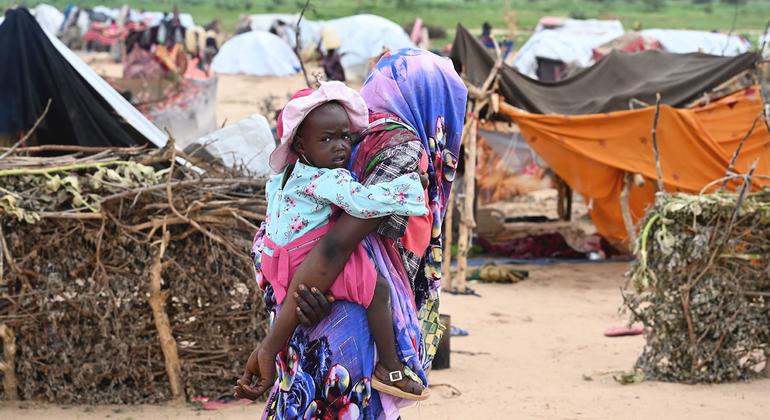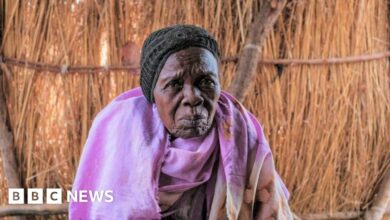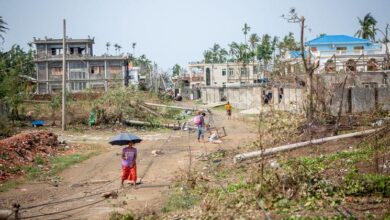UNHCR launches $10 billion appeal to tackle global refugee crisis by 2025

Announced earlier this week, the agency Global call comes amid escalating humanitarian crises, as conflict, repression and the growing impact of climate change continue to force millions of people from their homes.
“We live in an age of constant emergencies. Of crises without end,” said High Commissioner Filippo Grandi, emphasizing the scale of the challenges in the preface accompanying the call.
He highlighted recent and ongoing conflicts in Sudan, Ukraine And Lebanonhave caused massive displacement, while also bearing in mind the protracted nature of many refugee situations, including those involving displaced populations from Myanmar and Democratic Republic of Congo (DRC).
Fully funded, the appeal aims to support more than 139 million refugees and other vulnerable groups in some 136 countries and territories.
Three main areas
The call focuses on three main areas: emergency response, inclusion and long-term solutions.
UNHCR Mr. Grandi said he remained committed to his frontline role in emergencies, providing life-saving aid to displaced people, Mr. Grandi said, adding: “When conflict breaks out, UNHCR is one of the first agencies to respond.”
The call also goes beyond immediate support, calling for sustainable approaches that integrate displaced individuals into local and national systems.
UNHCR aims to work with governments, civil society and development organizations to promote inclusion in education, health and employment.
Numerical analysis
Of the 139.3 million targeted beneficiaries, 34 million (24%) are refugees, 68 million (48%) are internally displaced, 12 million are returnees, and about 4.5 million are non-returnees. nationality as authorized by the agency.
About $2.1 billion is needed for UNHCR programs in the Middle East and North Africa, $1.2 billion in Europe, $957 million in Asia and the Pacific, and $815 million in the Americas.
Across the African continent, $2.1 billion is needed in East and Horn of Africa and the Great Lakes, $1.2 billion in West and Central Africa and $451 million in Southern Africa.
Worry for Asia and the Pacific
UNHCR predicts that Asia-Pacific region by 2025 could face increased displacement due to conflict, repression, the impacts of climate change and more disasters. It forecasts an increase in the complexity and scale of emergencies, which, combined with a reduction in donor support, risks being unable to meet escalating needs.
In response, UNHCR will focus on implementing commitments from the Global Refugee Forum, which includes more than 60 commitments from States to strengthen protection and find solutions for refugees. Afghan refugees And The Rohingya are stateless population.
Afghanistan remains the leading country of origin for displaced people in the region, where more than 9 million people have been forcibly displaced. Neighboring countries Iran and Pakistan bear the brunt, sheltering 3.9 million and 2.4 million Afghan refugees, respectively.
Similarly, Bangladesh continues to host more than a million stateless Rohingya driven from their homeland in neighboring Myanmar over many years.
Other area overview can be found by clicking here: America, East and Horn of Africa and Great Lakes, Europe, Middle East and North Africa, South AfricaAnd West and Central Africa.

Driven from their homes in Myanmar, more than a million Rohingya refugees have sought refuge in Bangladesh.
Work together
Mr. Grandi also emphasized the importance of innovation and collaboration, reiterating that addressing forced displacement requires a unified global effort.
“We don’t work alone. Reaching those in need – both the displaced and the places that host them – requires cooperation with governments, local actors, academia and the private sector.”
UNHCR plans to build on the progress made at the 2023 Global Refugee Forum, where thousands of commitments were made to support displaced populations.
A key focus for 2025 will be to turn these promises into concrete action, supported by technical expertise and funding from the international community.
Unpredictable times
Mr. Grandi also acknowledged the unpredictable nature of global crises and expressed confidence in UNHCR’s readiness.
“Our determination and experience enable us to face the future – uncertain as it may be – with conviction,he said.
With forced displacement reaching record levels, he stressed the importance of global solidarity, calling on governments, donors and the private sector to contribute to the $10 billion target.




